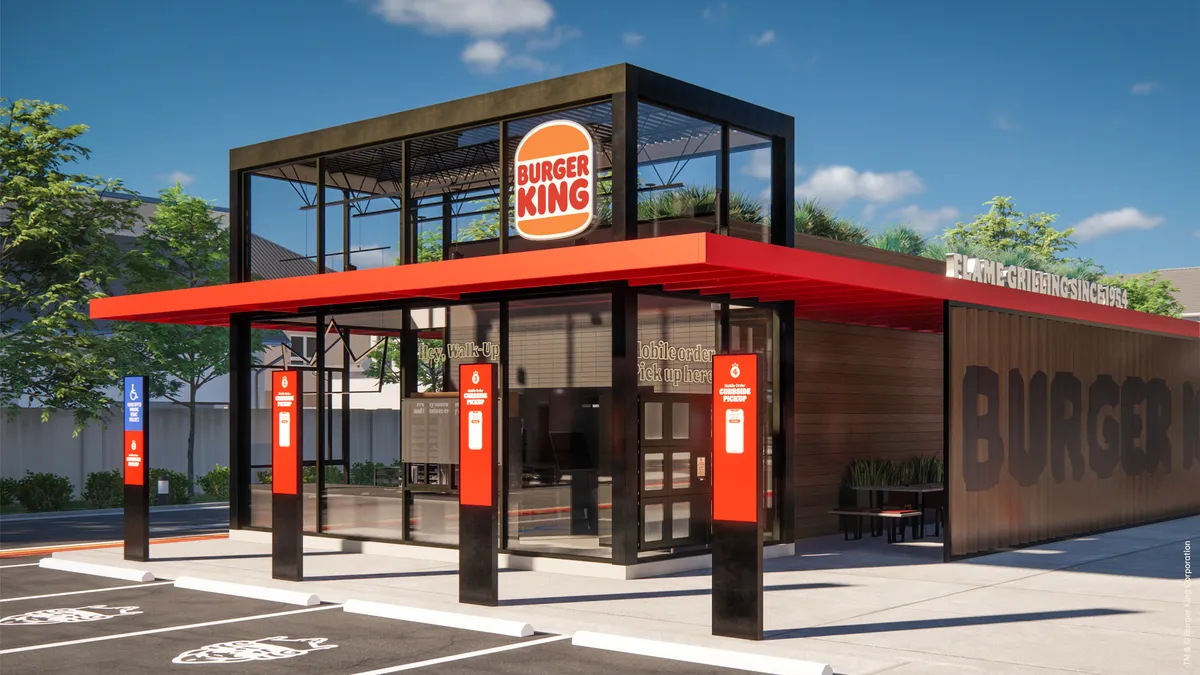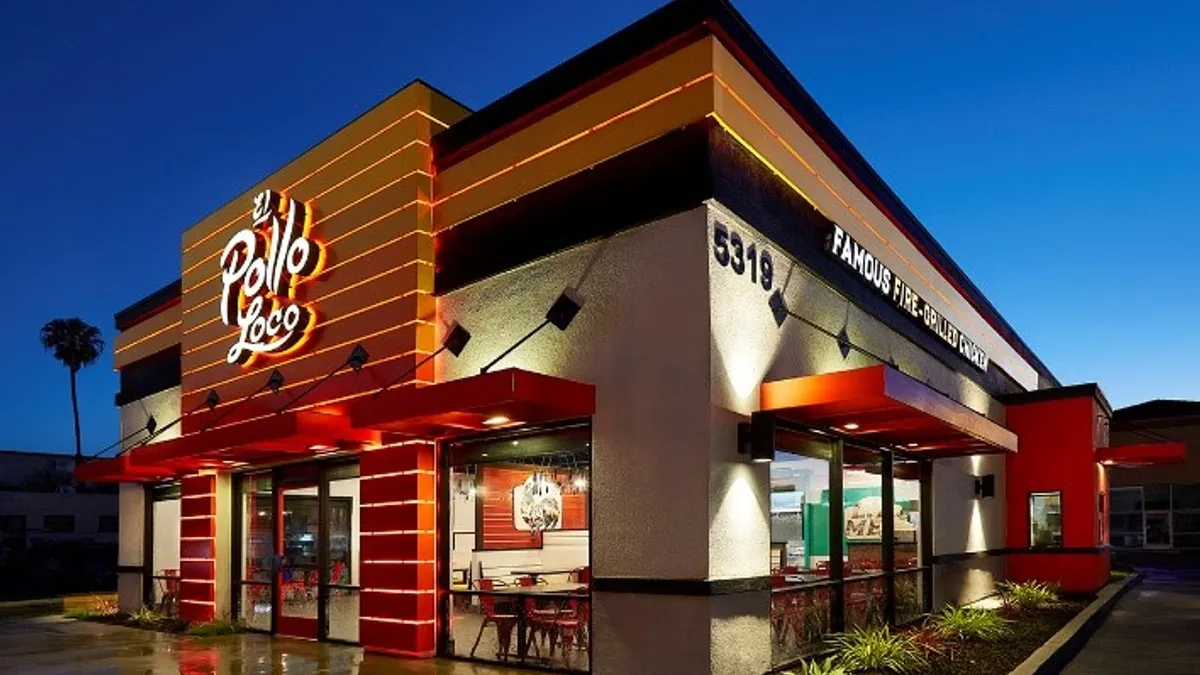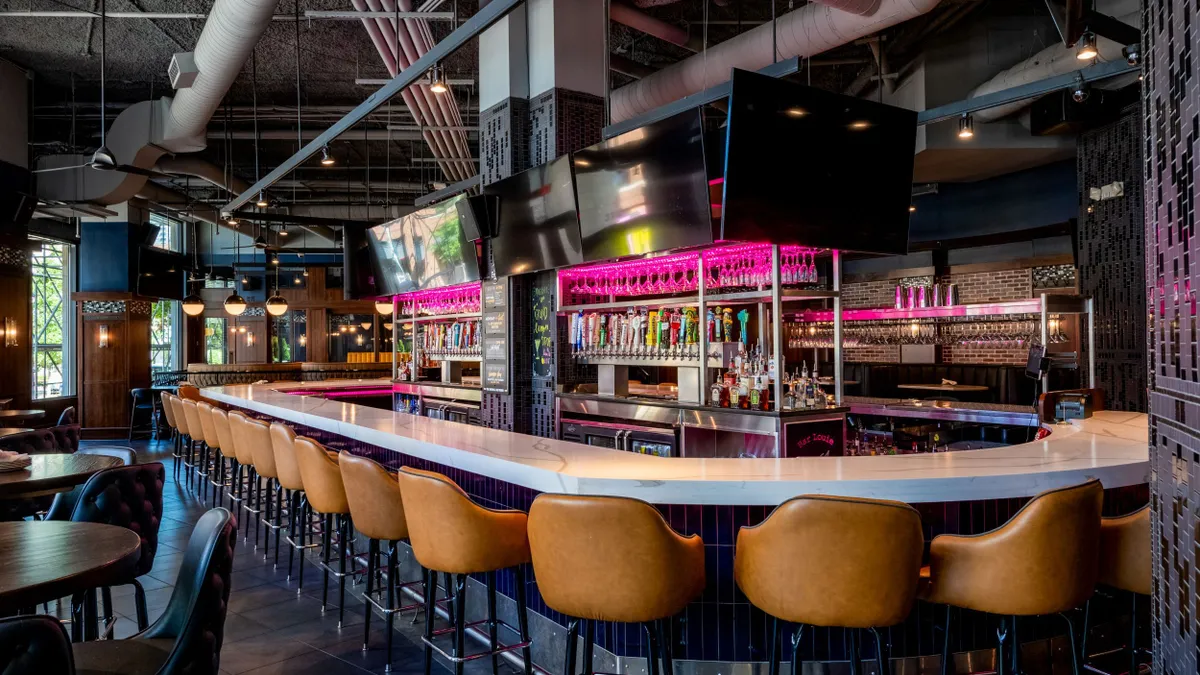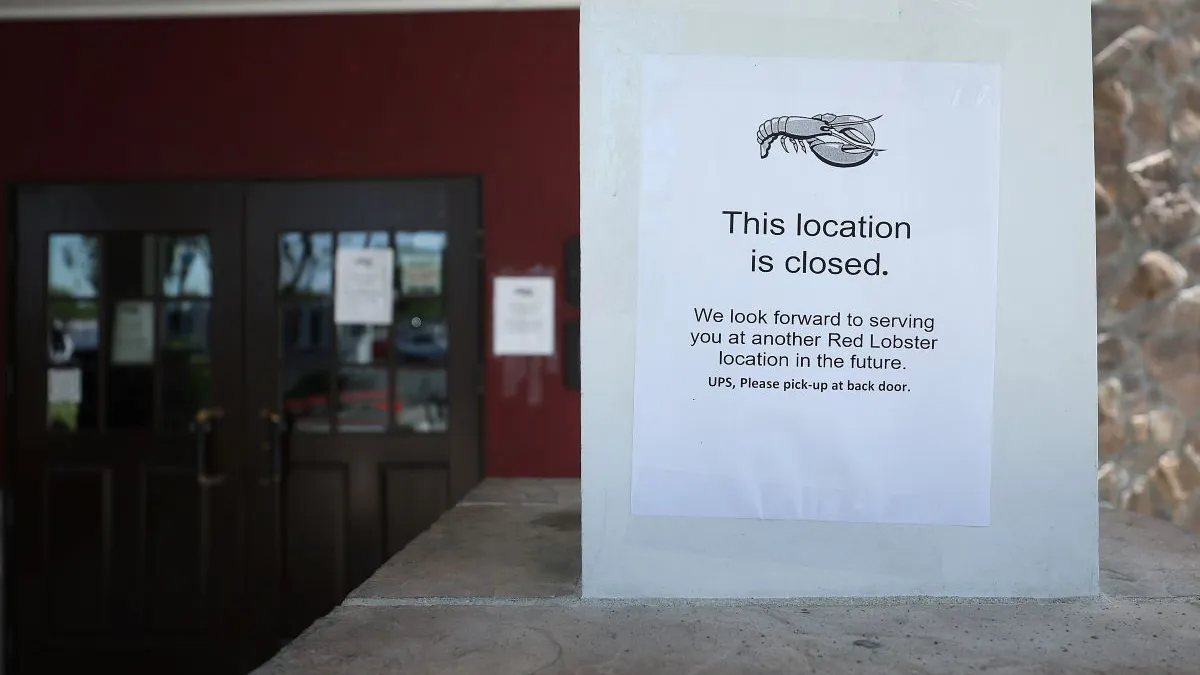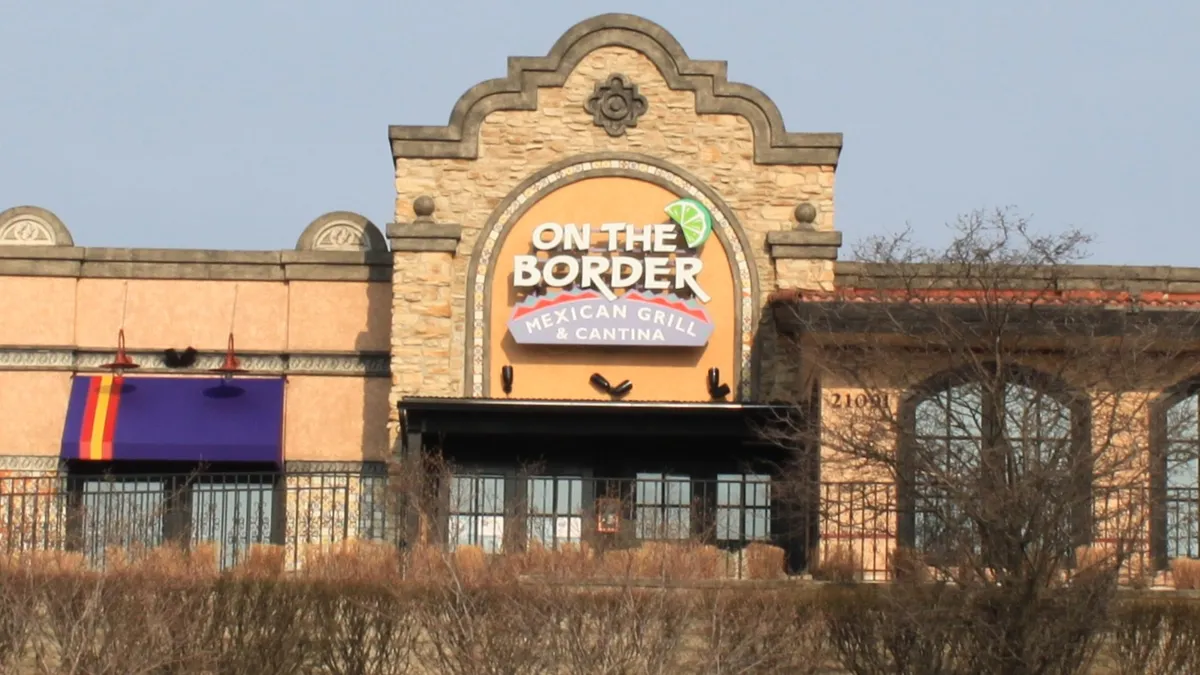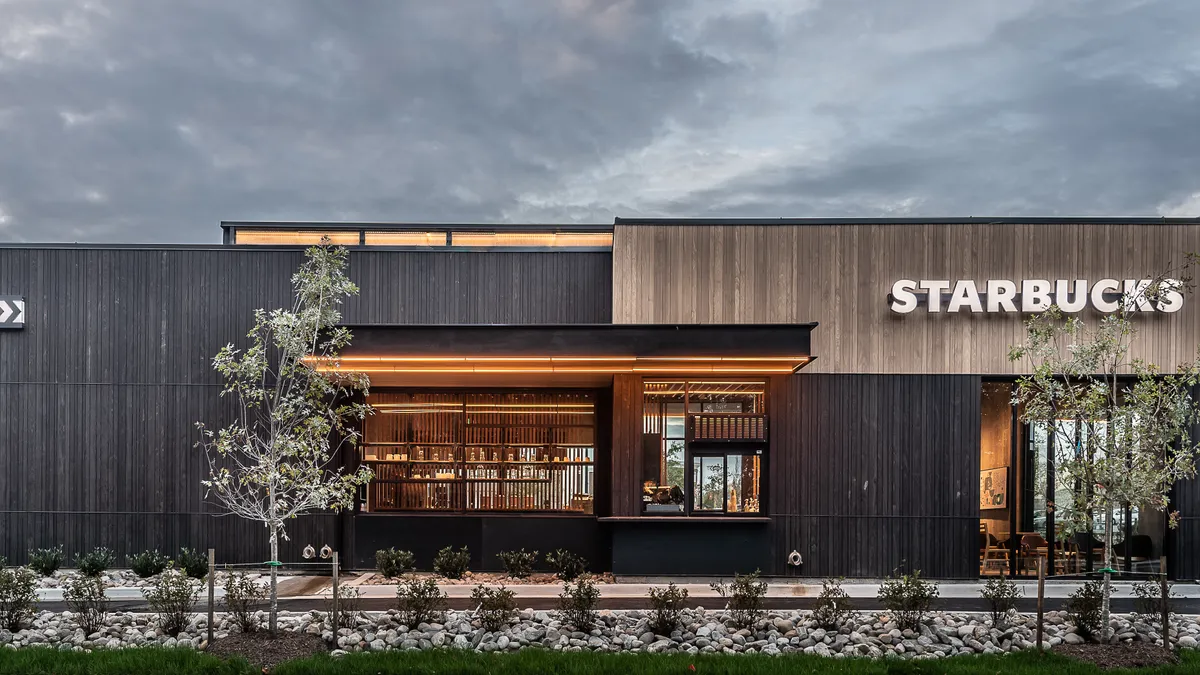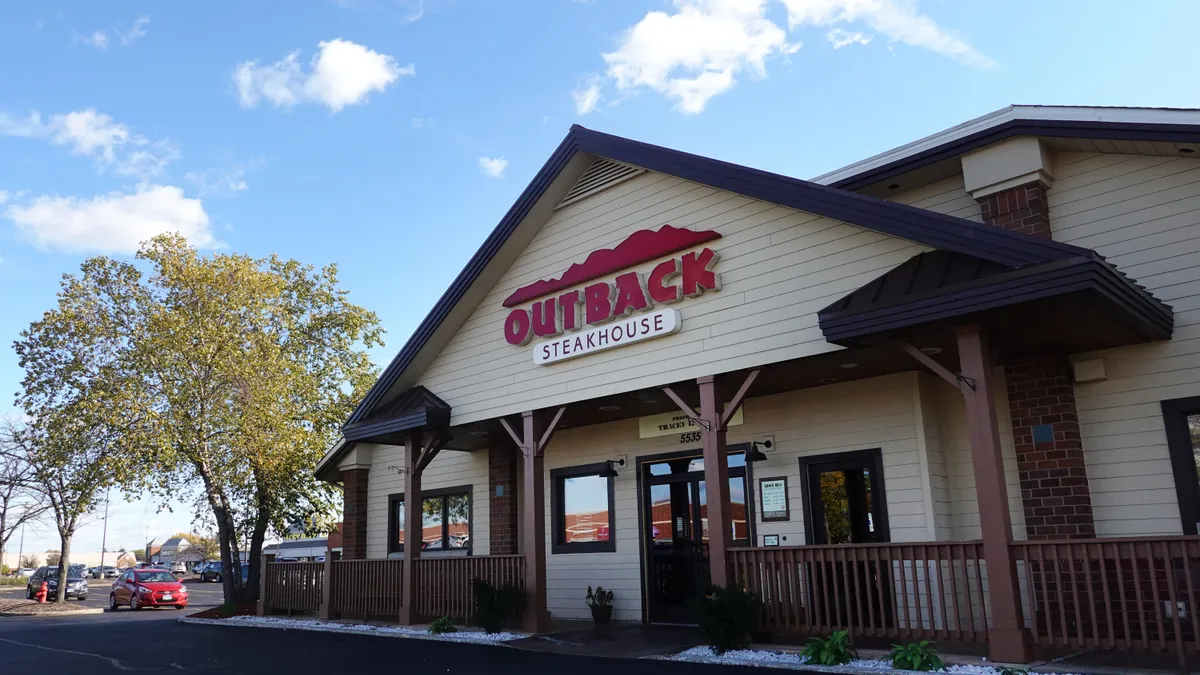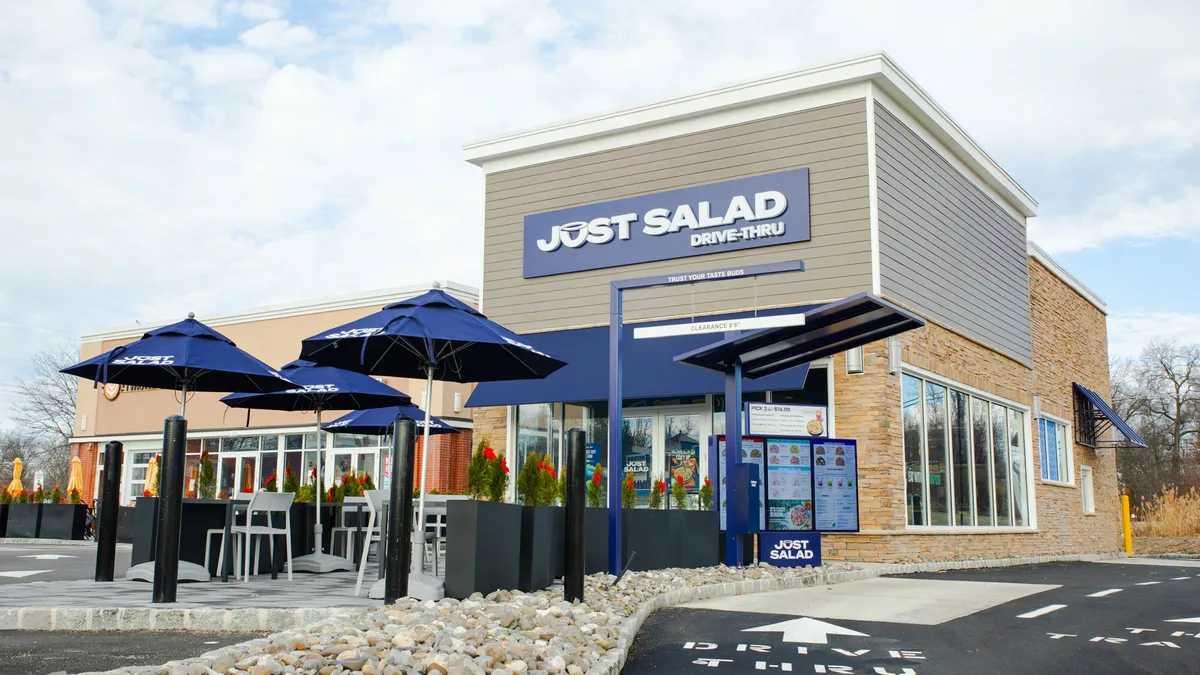The bankruptcies of two Burger King franchisees, operating more than 200 stores, eight weeks apart, sent ominous flares through the QSR segment.
Restaurant Dive interviewed both franchising and financing experts to discern whether the bankruptcies were harbingers of further troubles for RBI and why competitors haven’t faced these problems so far.
“The biggest issue that I think Burger King has now is they didn't have the cushion that most of their competitors had from a significant ramp up and profitability during COVID-19,” said Carty Davis, partner at C Squared Advisory Group, an investment bank working primarily with franchised business.
Davis and Brent Elsass, a principal at C Squared, said Burger King’s U.S. business lagged behind the digital capabilities of its competitors prior to the pandemic, leaving the company poorly positioned to capitalize on the boom in off-premise sales in early 2020.
“I don't think that they had the right marketing and product emphasis at that point in time,” Davis said. “I think the brand was sliding into COVID. And they didn’t really have a lot of momentum at that point in time, and I think other brands were more prepared.”
As the post-pandemic business recovery kicked in and inflation started biting, Davis said Burger King saw its margins erode, making it hard for the chain to close the gap with its rivals.
One constraint on the company’s ability to respond is the structure of its debt, said Siye Desta, an equity research analyst with CFRA Research.
According to RBI’s earnings release, the company’s adjusted EBITDA net leverage 5.1x, which Desta said was higher than competitors. This means the company may have less room to take on the debt needed to finance expensive projects, such as the partial overhaul of its Burger King U.S. franchised stores as part of its Reclaim the Flame program.
“The leverage issue is something that Restaurant Brands International has to look at, in how to restore the Burger King U.S.” Desta said. “In the low [interest] rate environment, it wouldn't be that big of a disadvantage, but they’re doing this in a higher rate environment. It definitely makes the contrast more meaningful for the financials of the company.”
Rising interest rates have stressed many franchisees by making it harder to obtain financing at low cost while labor costs, supply chain issues and development costs have all increased, said Ab Igram, executive director of The Tariq Farid Franchise Institute at Babson College.
Igram said some franchisees across the industry may be overleveraged, whether from taking on debt to upgrade restaurants, or as a result of eroding profitability due to low sales in underperforming markets.
But, Igram said, these problems are common across franchise systems. “I don’t see anything that’s specific to RBI or, in this case the Burger King brand.”
However, Davis said there may have been issues with RBI’s franchisee support systems. “Burger King and RBI in general have a reputation for very young support people, very smart, but very young and not experienced in the industry. They turn their positions over quickly,” he said. “[There has been] significant pushback from the franchisee community on that aspect.
Low franchise profit make it hard to borrow
The macroeconomic trends cutting into margins make it harder for restaurants to access credit, Davis said. In a recent earnings call, RBI leadership said four-wall EBITDA was below the company’s goals, lingering at about $140,000 compared to the company’s 2024 target of $175,000.
“Everybody has struggled to maintain margins,” Davis said. “If the economy is slowing down you can no longer pass price increases as aggressively on the consumer as you could a year ago.
“In many cases, because of operating issues and margin issues and profitability issues, the ability to access credit lines for remodeling for new development is constrained significantly.”
Davis said a significant, but unspecified, percentage of QSR franchisees have lost access to development lines of credit and are in some form of technical default, meaning franchisees have exceeded their lease-adjusted leverage ratios or are failing to meet criteria set in other lending covenants, such as EBITDA targets or liquidity requirements.
But Elsass said the situation may improve in the long run for Burger King franchisees that seem to have bought into the Reclaim the Flame brand overhaul. “There is a lot of buy-in from the franchisees, you know,” he said. “They see it as a win-win proposition.”
Still, the Reclaim the Flame program may put more pressure on franchisees in the short run, given the difficulty of finding credit. Davis said ROI for individual remodels tends to decrease after franchisees have remodeled those stores well-positioned to benefit from overhauls, which becomes a point of tension between franchisors and franchisees.
“[Franchisees] are likely to get the higher sales bump and higher return in their first remodeling projects,” Davis said. “Deeper into your portfolio that remodeling becomes more defensive, where you do it to remain competitive. You do it to be in compliance with brand standards, but it's not going to be a very good return on capital.”
Still, the inflation, labor, supply chain and development costs eating into margins, combined with the difficulty of obtaining credit, are broader industrial problems impacting QSRs across the board. Burger King’s recent performance gives some reason for optimism.
RBI’s incoming CEO Joshua Kobza said the chain’s franchisee profitability increased in Q4 2022, and U.S. comparable sales were up 5% in that quarter.
These changes, Davis and Elsass said, may mean Burger King has weathered the worst of the storm.
“These brands are hard to kill,” Elsass said. “They have had their turn for too long in the cellar, from that standpoint. But what that also means is they've got a lot of room to turn things around.”
Davis said that while RBI franchisees are facing pressures, Burger King’s turnaround, driven both by remodels, digital investments and marketing spend, may bring some relief.
“If they’re going to get through Q1 and into Q2, they’re probably going to make it unless their bank just doesn’t want them around anymore,” Davis said. Though he added that the impacts of liquidity problems at lenders, triggered in part by the failure of Silicon Valley Bank, are not yet clear.
But Burger King may not wish to keep all of its franchisees on extant terms. On Tuesday, Business Insider reported that EYM King, a franchisee of Burger King, failed to reach an agreement with the franchisor, resulting in the closure of 26 stores in Michigan.



